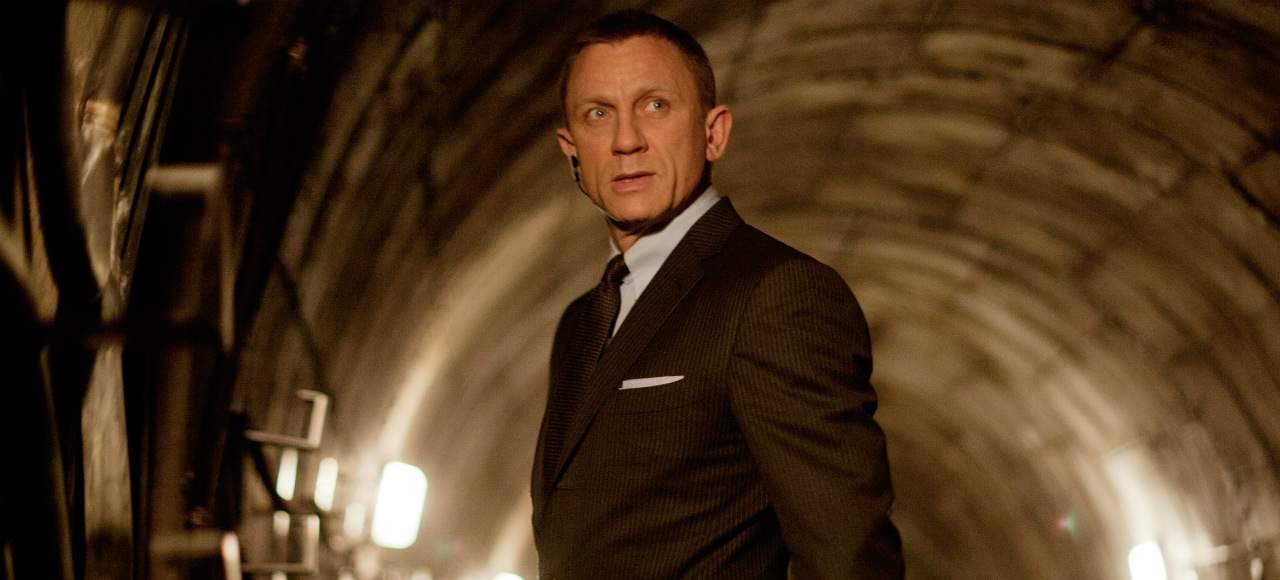SPECTRE
It's no Skyfall, but SPECTRE still contains all the elements of a classic Bond.
Overview
Let’s clear one thing up immediately: SPECTRE isn't nearly as bad as some critics are making out. We’re mercifully far from the nightmarish hellscape of Die Another Day or the '…...............huh?' of Quantum of Solace. It's just that SPECTRE isn’t quite Skyfall, either.
Firstly, though, to the good bits. This film is stunning. Cinematographer and man with a Bond name Hoyte van Hoytema (Interstellar, Her) has crafted something magnificent here, framing every shot to perfection regardless of scale. Credit, too, to director Sam Mendes, who again proves that his dramatic background in no way hampers his ability to shoot thrilling action sequences. On that front, the film’s best is also its first: a five minute ‘uninterrupted’ tracking of Bond through the streets of Mexico during the Día de los Muertos festival. In fact, the whole first half hour of SPECTRE is so tight, its trajectory puts it on track to rival (or even surpass) its predecessor, however it's at that point where unfortunately the cracks also begin to appear.
The overall viewing experience of SPECTRE might best be described as one of déjà vu. The story, to its benefit, draws heavily upon the three previous films as both an explanation for Bond’s increasingly tortured temperament and as a through-line tying the whole ‘Craig era’ together. Where things get problematic, though, is when near-identical scenes pop up from those earlier movies. Bond being fitted with an implanted tracking device in his right arm comes straight out of Casino Royale. Bond joining his beautiful French companion in a train's dining car while they discuss why he does what he does — that's Casino too. M having to the defend the 00 program from accusations of redundancy and outdatedness formed much of Judi Dench’s screen time in Skyfall, and the villain’s desert base in SPECTRE looks remarkably like the one from Quantum with a different coat of paint. Even the score by Thomas Newman feels overly familiar, with some sections essentially cut-and-paste jobs from the Skyfall soundtrack (Jellyfish to Hinx, for example). SPECTRE’s strongest scenes are its original ones, and with a reported budget of well over $200 million it’s a crime they weren’t all that way.
On the performance front, Craig is reliably stony as Bond, although ‘franchise fatigue' has visibly set in. His dispassionate characterisation often slips into languor in SPECTRE, relinquishing only when opposite Léa Seydoux as his love interest Madeleine. Seydoux is the clear standout, imbuing Madeleine with every ounce of intelligence and mystery the script could provide. As the villain, Christoph Waltz receives a disappointing amount of screen time, and his character lacks much of the menace conveyed by Javier Bardem in Skyfall. Regulars M, Q and Moneypenny all hold their own (played again by Ralph Fiennes, Ben Whishaw and Naomie Harris), while Andrew Scott of Sherlock fame puts in a nice turn as ‘C’ — the new head of MI5.
Again, this is not a bad film. The confusing or absent motivations, plot holes and scene repetition notwithstanding, SPECTRE still offers up all the elements of a classic Bond. Its action scenes are gripping, its wit affords welcome chuckles and its opulence entices. Any film that came after Skyfall was always going to be like opening up birthday socks when you'd already unwrapped the new car: it was destined to disappoint. But if you can remind yourself that socks are still pretty neat too, especially $200 million dollar ones with gorgeous people, places and cars on them, then you’ll find more than enough to like about SPECTRE.





